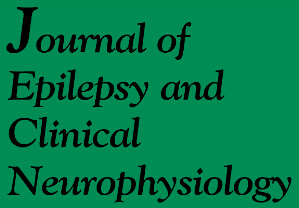INTRODUCTION: The identification of behavioral states is a determining factor in the clinical and neurophysiological evaluation of neonates and presents itself as an important indicator of normal and abnormal development of the central nervous system. The physiological variables that are important in behavioral assessment are: heart rate, respiratory frequency, presence of rapid eye movements, electromyogram, electroencephalogram and behavioral variables (opening and closing of the eyes, body movements, crying). METHODS: In this article, we performed a comprehensive review of the literature in the period of 1970- 2008 where a search was conducted involving the terms, behavioral states and newborns/sleep and newborns/EEG and behavior. We used the database Medline, Scielo and Web of Science. This review was done in the period between August and November 2008. CONCLUSIONS: The systematization of the findings of behavior in newborns associated with the bioelectric and graphic element organization permit the early identification of brain impairment and prognosis of newborns at risk with low birth weight. In literature there are still controversies regarding standardization and systematization of behavioral states of premature children, in term children this has been already defined.
Behavioral state; premature newborns; term newborns; sleep states
